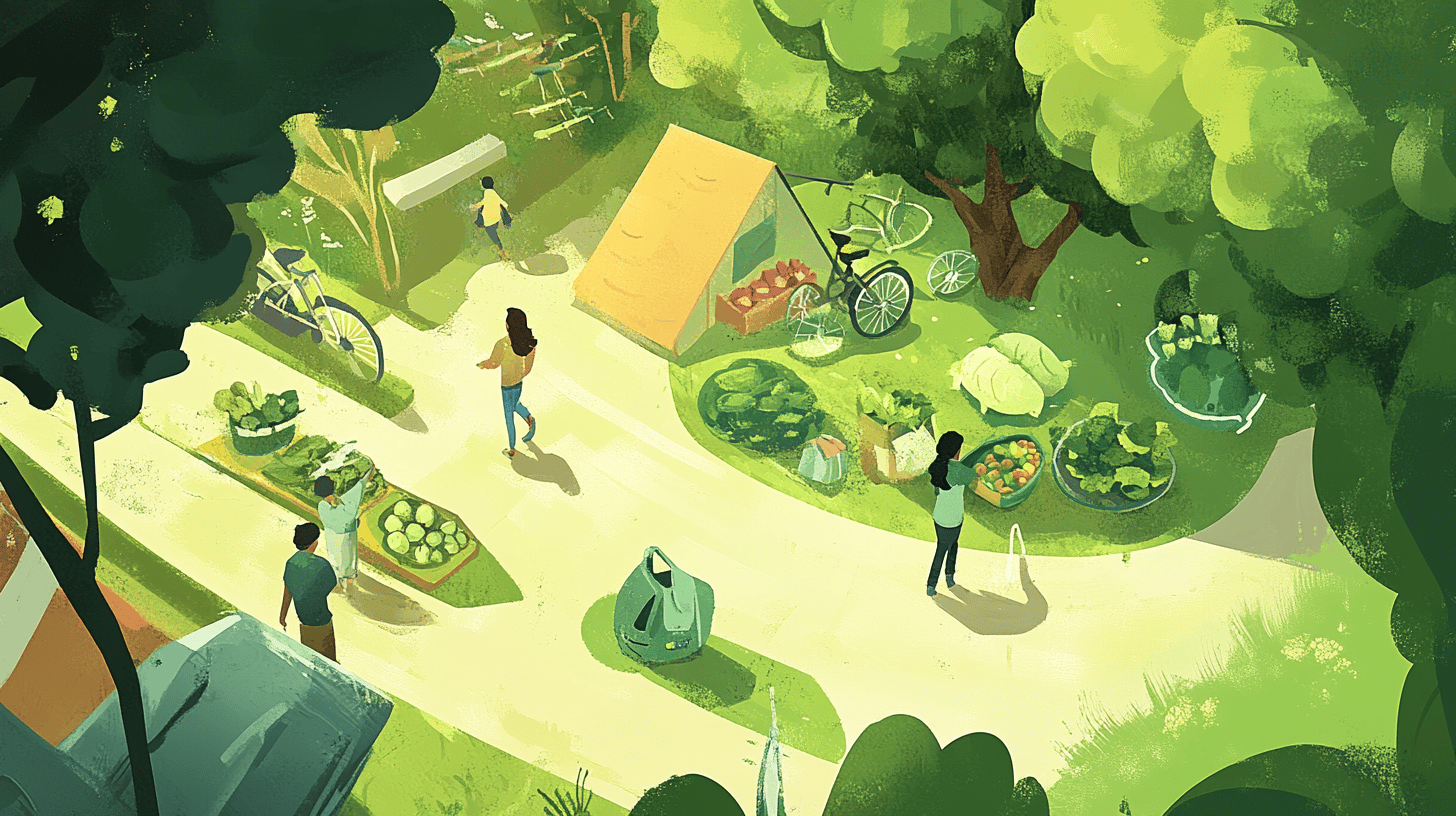Nowadays, the discussion about sustainability has become essential. The impact that our actions have on the environment is a recurring topic, and more and more people are looking for ways to be more conscious in their daily lives. This post brings together 10 practical tips that can help you not only reduce your ecological footprint, but also inspire others around you to do the same. If you want to make a difference and contribute to a healthier planet, keep reading!
1. Reduce plastic consumption
Plastic is one of the biggest culprits of environmental pollution. The first tip for having a positive impact on the environment is to reduce your consumption. Use reusable bags for shopping, opt for reusable water bottles, and avoid products packaged in plastic whenever possible. Every little thing counts and, when added together, can represent a significant change.
2. Prioritize sustainable and ecological products
When shopping, choose products that are labeled as sustainable. This includes cleaning products, cosmetics, and food. In addition to helping the environment, you’ll be supporting companies that care about the planet. This results in a virtuous cycle where the demand for sustainable products encourages more companies to adopt eco-friendly practices.
3. Save energy
Reducing your electricity consumption is an effective way to reduce your environmental impact. Some tips include: – Unplugging appliances when not in use; – Using LED light bulbs, which consume less energy; – Investing in appliances with an A energy rating. These small changes to your home can result in big energy savings in the long run.
4. Practice sustainable mobility
Choosing less polluting means of transportation is a great way to contribute to a cleaner environment. Whenever possible, use a bicycle, walk or take public transportation. If you need a car, consider carpooling or opting for a hybrid or electric model. These actions help reduce polluting gas emissions.
5. Choose organic and local foods
Eating organic products not only benefits your health, but also helps preserve the environment. Locally grown foods have a lower environmental impact because they don’t require long transportation chains. Visit local farmers markets where you can find fresh fruits and vegetables directly from the farmers, and avoid ultra-processed products that come packaged in plastic.
6. Compost your waste
Composting is a practice that transforms food scraps and other organic waste into natural fertilizer. By composting, you reduce the amount of waste that goes to landfills and also provide nutrients for your plants. You can start small compost bins at home, which helps close the food cycle, from production to reuse.
7. Maintain conscious consumption
Before making a purchase, ask yourself if you really need the item. Many products are purchased impulsively and end up becoming waste. By prioritizing conscious consumption, you not only save money, but also reduce the amount of waste generated. Make a shopping list and avoid getting carried away by consumerism.
8. Encourage the circular economy
The circular economy aims to keep products, materials and resources in use for as long as possible. Try to repair damaged products instead of throwing them away and encourage sharing between friends or communities. This not only reduces waste, but also promotes greater social connection and benefits the environment.
9. Participate in community initiatives
Get involved with groups that advocate for sustainable practices in your community. This could include participating in park cleanups, planting trees, or even organizing educational events about sustainability. In addition to making new connections, you’ll be actively contributing to the health of your local environment.
10. Expand your environmental education
Finally, never stop learning about the environment and the practices you can adopt. Read books, watch documentaries, and take online courses. The more information you have, the better you will be able to make sustainable and effective choices. Educating yourself not only benefits you, but also the people around you, who will be inspired to follow your example.
Conclusion
Adopting sustainable practices in your daily life is not just an individual responsibility, but a collective commitment to the future of our planet. By implementing these 10 tips, you will be contributing to a greener, healthier world, and encouraging others to join in this cause. Don’t underestimate the power of your influence! Start today and make a difference for a better tomorrow.



